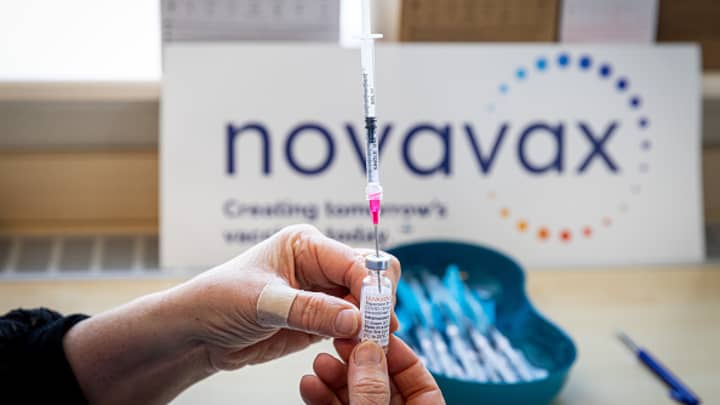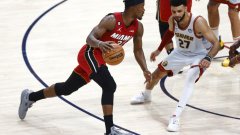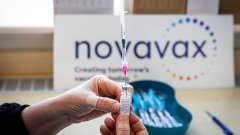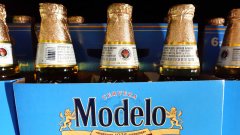
Americans can finally get their hands on 's newest after U.S. regulators greenlighted the shot this week.
The vaccine's comes nearly three weeks after from and reached the public, and after more than rolled up their sleeves to get a shot in September. But Wall Street analysts aren't worried about that delay.
They said Novavax appears well positioned to catch up and compete this fall with the other companies in the , particularly after hampered the rollout of the other shots and a Food and Drug Administration that allows for wide accessibility to Novavax's jab, among other factors.
"I'm really not concerned about the timeline or lag relative to the other shots," B. Riley Securities analyst Mayank Mamtani told CNBC. He added that regulators cleared Novavax's new shot only slightly later than what the company had estimated, which was late in the third quarter.
That's good news for Novavax, which is working to its financial position after about its ability to stay in business at the beginning of the year. The biotech company is banking on sales of its updated Covid vaccine — its only commercially available product — and a to help it stay afloat.
Public health officials see Novavax's vaccine as a valuable alternative for people who don't want to take messenger RNA shots from Pfizer and Moderna, which teach cells how to make proteins that trigger an immune response against Covid. Novavax's shot fends off the virus with protein-based technology, a decades-old method used in routine vaccinations against hepatitis B and shingles.
Silvia Taylor, Novavax's chief corporate affairs and advocacy officer, told CNBC that the company has collected data showing that 25% to 30% of people prefer a protein-based vaccine.
"We look forward to meeting this demand and more in the wake of new variants and rising COVID cases," Taylor said in a statement.
Shares of Novavax jumped more than 10% on Tuesday after the FDA cleared its new shot. But the company's stock is still down more than 25% year to date after shedding more than 90% of its value last year.
The FDA Novavax's updated vaccine — which targets the omicron subvariant XBB.1.5 — for emergency use in people ages 12 and older. Patients previously vaccinated with an older Covid vaccine are eligible to receive one dose of Novavax's new jab, while unvaccinated people can receive two doses, according to the authorization.
The FDA similarly the new shots from Pfizer and Moderna for people ages 12 and older, but the agency also authorized those vaccines for emergency use in children ages 6 months through 11 years old.
Still, Mamtani said the authorization label for Novavax's new vaccine is "broad and without any notable restrictions for the first time," which will likely make the shot as widely accessible to teens and adults as the new mRNA jabs. That puts Novavax on more of a level playing field with Pfizer and Moderna this fall, even as a late entrant to the game.
The for Novavax's last Covid booster was far more restrictive. Last year, the FDA authorized it as a first booster dose for people ages 18 and older who couldn't receive a new mRNA shot for accessibility or clinical reasons. That "basically disqualified a lot of people" from getting it last fall, according to Mamtani.
"Finally, after three years, Novavax has a label that puts its vaccine at parity with the mRNA shots," Mamtani said. "I think the most powerful words on that label was that people can get it regardless of their previous Covid vaccination history."
Novavax's vaccine is entering the market after Pfizer and Moderna had a to the rollout of their shots. Insurance and left many Americans unable to find or access the new mRNA vaccines for free, which may give Novavax an opportunity to catch up and get more people to take its shot.
"We know that a lot of people have tried to get an mRNA vaccine, but they aren't able to because of logistical challenges of access and distribution," Jefferies analyst Roger Song told CNBC. "So, that's one reason why the two or three weeks delay won't necessarily be a hurdle for Novavax."
There's no way of knowing whether the rollout of Novavax's new shot will see similar logistical snags or if it will have a smoother launch. The federal government distribution and coverage to the private market for the first time this fall. That has proved to be a tricky transition for the U.S. health-care system.
However, health-care providers and pharmacies have signaled that they are ironing out logistical issues and will be better equipped to handle them in the future.
Last week, a group of insurers told the Biden administration they were "largely, if not completely," done with in insurance coverage for the new Covid shots. Those delays had resulted in some patients getting charged up to $190 for a shot at pharmacies.
"Should further issues arise, we stand ready to swiftly implement system improvements," the insurers said in a letter.
Some pharmacies, like , also appear to be resolving supply disruptions, which left many stores without any new Covid shots for patients to receive.
What's more, Novavax's new shot might actually be arriving at just the right time: a month before Covid vaccine demand is expected to peak in the U.S. this fall and winter.
Jefferies' Song said the peak could follow a similar pattern as last season when most Covid boosters were administered in November. That's partly because there is "less urgency" among Americans when it comes to Covid shots compared to early on in the pandemic, which could cause them to get vaccinated later rather than earlier.
"During the first season of Covid, everyone rushed to get vaccinations because it was really an emergency state. But now people have a mindset where they're saying, 'OK, I will wait and see how bad Covid really gets,'" Song said.
By November, Novavax's new shot will likely be as widely available as shots from Pfizer and Moderna at pharmacies, doctor's offices and other vaccine distribution sites.
But the biggest uncertainty this fall for all three companies is how many Americans will decide to get another Covid vaccine, Song said.
Last year's uptake was already feeble: Only about 17% of the U.S. population — around 56 million people — received last year's boosters, according to the Centers for Disease Control and Prevention.
"We don't know how big the overall pie will be because we've never been in a commercial market for Covid vaccines," he told CNBC. "This fall will set a new benchmark for the entire Covid vaccine space."




